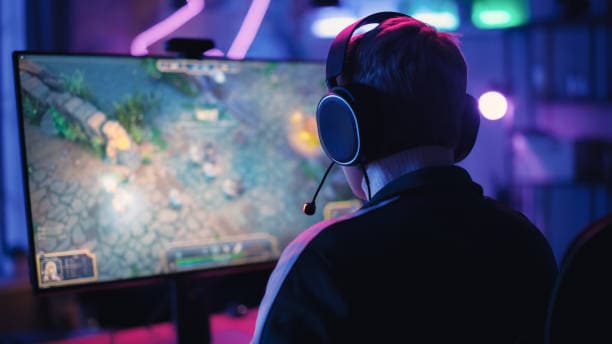In today’s digitally connected world, video games have become not only a means of entertainment, but also a powerful tool for developing critical thinking and problem-solving skills. Research shows that engaging in gaming can improve these critical skills needed in all aspects of life. In this article, we will look at exactly how video games influence the development of problem-oriented thinking and how you can maximize useful skills by playing them.
Developing critical thinking through strategy games
Strategy video games, spanning the genres of both real-time strategy (RTS) and adventure games with puzzle elements, are a powerful tool for developing critical thinking. These games require players not only to react quickly, but also to plan strategically, think analytically and adapt to new challenges.
Examples of games and their impact
- Real-Time Strategy (RTS). StarCraft and Age of Empires require players to develop an economy, manage resources, build an army, and fight battles, all in real time. Players need to make quick decisions, anticipate enemy actions, and develop a multifaceted strategy to achieve victory.
- Adventure games with puzzle elements. The Legend of Zelda and Portal present players with challenges that require logical thinking and creative problem solving. These games often offer challenging puzzles that cannot be solved without carefully analyzing the environment and using innovative solutions.

How strategy games develop critical thinking
- Developing strategic thinking. Strategic thinking involves the ability to analyze a situation, make informed decisions, and predict the long-term consequences of those decisions. While playing RTS and adventure games with puzzle elements, players are constantly challenged to assess the current state of affairs and make decisions that will contribute to their future success.
- Improved adaptability. The changing conditions of the game world require players to be flexible in their thinking and adaptable. When faced with new challenges and unexpected obstacles, players learn to quickly rethink their strategies and look for alternative ways to accomplish a goal. This ability to adapt is a valuable skill applicable to many aspects of real life, especially in environments that are rapidly changing or uncertain.
Increasing patience and perseverance levels
Through the process of play, especially when faced with difficult challenges and seemingly insurmountable obstacles, players learn not only to patiently explore different strategies to solve them, but also to persevere in the search for a successful outcome without giving up at the first sign of failure. This constant interaction with challenges in the game world, requiring time, effort, and often multiple attempts to achieve a goal, fosters patience and perseverance in players. Thus, video games provide a unique platform for developing these qualities, which are key to effective problem solving not only in the virtual world but also in the real world, where the ability to persevere and find solutions in the most difficult situations can determine the outcome of any endeavor.
Developing team skills and collaboration
In games such as team-based shooters Overwatch and Counter-Strike, and massively multiplayer online games (MMORPGs) like World of Warcraft, teamwork and collaboration are at the forefront. These games require players not only to have a high level of individual skill, but also the ability to communicate effectively, cooperate, and strategically plan as a team. The gameplay encourages the development of communication skills, as players need to discuss tactics, coordinate actions and solve problems in real time.
Through this interaction in games, participants also develop leadership skills. In situations where the success of a team depends on a clear distribution of roles and quick decision making, those players who can take on the role of leader, organize the efforts of the group and direct them towards achieving a common goal come to the fore. These in-game moments provide valuable experience that players can apply in real life, improving their leadership and teamwork skills professionally and personally.
Improved ability to multitask
Improving your multitasking ability is one of the key benefits that modern video games have to offer. During the game, participants often have to simultaneously manage a number of variables and tasks, which trains their ability to effectively switch attention and coordinate actions. Let’s look at how video games help develop this important skill:
- Resource Management: Many strategy games, such as Civilization or StarCraft, require players to control limited resources (gold, food, building materials), distributing them among various tasks and projects. This requires alertness and the ability to quickly adapt to change.
- Monitoring Character and Team Health: In role-playing and team-based games such as World of Warcraft or League of Legends, players need to monitor not only their character’s health, mana (or similar resource), skills, and positioning. team members. This teaches them to quickly respond to changes and make decisions that can affect the outcome of a battle or mission.
- Map Following and Navigation: Open world games such as The Witcher or Skyrim require players to simultaneously explore the world, complete quests, and navigate the map. The ability to quickly switch between these tasks develops spatial thinking and planning ability.
- Puzzle Solving under Time Pressure: Puzzle-solving games, such as Portal or Tetris, often set a time limit to add challenge. This forces players to work towards solving a problem while managing time and possibly other interfering factors.
- Strategic Planning and Execution: In games that require strategic planning, like XCOM or Final Fantasy Tactics, players must not only develop long-term plans, but also adapt their tactics in real time in response to enemy actions.
These aspects of gameplay not only make games fun and challenging, but also help develop players’ multitasking skills. The ability to effectively manage multiple tasks at once and quickly switch between different activities will come in handy in a wide variety of real-life situations, from school and work to organizing daily routines.
To sum up
Video games go beyond mere entertainment and are a valuable resource for developing and improving problem-solving skills. Through the variety of genres and challenges they offer—from strategic thinking in RTS and logic puzzles in adventure games to teamwork in multiplayer battles and multitasking in dynamic game worlds—video games teach, challenge, and motivate players to develop and apply these skills in real life. This highlights the importance of games as a tool for learning and personal growth, emphasizing their role in building the skills needed to successfully adapt and thrive in a rapidly changing world. A responsible and informed approach to choosing and interacting with video games can turn gaming time into an investment in personal and professional development, making it not only fun, but also rewarding.
